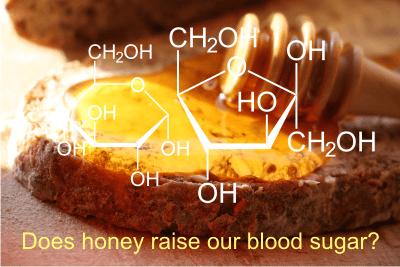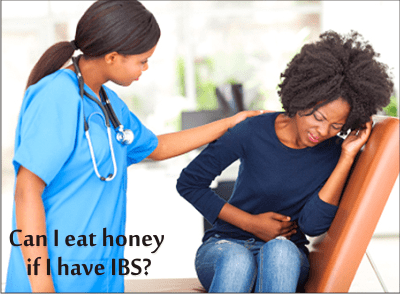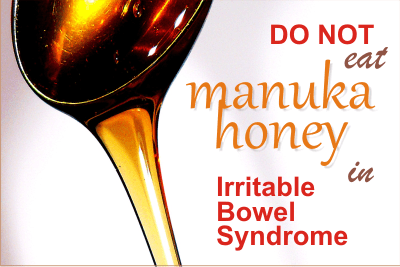Honey is medicine. It has been known since prehistory. Chinese knew it, Indians, Egyptians knew it. Muslims and Christians as well.
But modern days have changed things. Honey is not recommended in some diseases, and despite old beliefs, diabetes is not among them.
“Eat honey, my son, for it is good . . .” (Proverbs 24:13, New International Version)
Civilization brought us good and bad alike and we have developed modern diseases. So many conditions are said to be linked only to the past 50 years: depression, cancer, obesity, diabetes, allergies, malabsorption and so on.
Why did this happen? Some say that this happened because basically we shifted away from fats in our diet to a predominance of carbohydrates. A dietary shift that has produced results we can all see.
Today many people suffer from IBS – irritable bowel symptom, IBD – inflammatory bowel diseases, DFI – Dietary Fructose Intolerance, fructose malabsorption, insulin resistance (metabolic diseases). And everybody connects these diseases to fructose. But people were eating fruits before, right?
The answer seems to lie in quantities. 50 years ago we had fruits, but only local fruits harvested in their season. 50 years ago we were not obsessed with eating healthy – and with the idea that only fruits and vegetables are good for us. So we started eating more fruits and vegetables. But something worse happened: producers replaced all fats from the food with sugars, because otherwise they were tasteless. Sugars took the place of fats.
We were left to eat only sugars, fruits, vegetables, cereals, nuts and slim meat.
And so here is the #1 enemy of humanity: sugar.
 Too much of it. Not only in chocolate, but everywhere: in milk, yogurt, cheese, sausages, bread, salami, in all the places that are not supposed to be sweet. And they are not, but sugar is still there, to supply the lack of fat and improve taste.
Too much of it. Not only in chocolate, but everywhere: in milk, yogurt, cheese, sausages, bread, salami, in all the places that are not supposed to be sweet. And they are not, but sugar is still there, to supply the lack of fat and improve taste.
On top of all these we add cookies, pancakes, doughnuts, cakes, chocolates, ice-cream – because they are available everywhere and are so incredibly tasty.
And then we remember that we should eat healthy and buy fruits. Various, wonderful and mostly, genetically modified fruits. Fruits not only locally and from their season, but various fruits from all over the world, at our reach any time of year.
All this sugar gathers in our bodies. Humans were never meant to eat so much fructose. We eat it too much and too frequently and our body cannot handle that much fructose. There have already been several years since nutritionists and scientists asked people to return to a healthy diet with fats, without processed food and carbs.
Carbohydrates not even that are not essential in the human diet, they are detrimental and lead to serious diseases.
Irritable Bowel Symptom (IBS)
Can we eat honey if we have IBS? Yes and no.
IBS is the most common gastrointestinal disorder in the U.S. $1.6 billion is spent on treatments each year. It can cause debilitating pain and lower the quality of life, yet IBS is a functional disorder (meaning that there are no significant physical conditions that contribute to the problem). Symptoms include increased gas, bloating, distention, cramping, and diarrhea.
Although IBS is a disease of the digestive system, it is not connected only to the quality of ingested food. It was proved that 75% of people with IBS have insufficient levels of vitamin D, and about 70% reported improvement when taking vitamin D3 supplements. Our modern way of living inside houses and working in offices for more than 10 hours led to no sun exposure. This depleted us of Vitamin D3.
FODMAPs
This is the acronym for the low-Fermentable Oligosaccharide, Disaccharide, Monosaccharide, and Polyol (such as sorbitol, mannitol, xylitol and maltitol) foods.
The FODMAP diet starts from the idea that highly fermentable, but poorly absorbed carbohydrates and polyols, are the ones causing IBS. Rapid fermentation and passing of these substances due to their diminutive molecular size and high osmotic effect is associated with increased colonic bacterial fermentation and increased intestinal permeability (also identified as a predisposing factor to IBD in a genetically susceptible host).
Fructose malabsorption was found to be related to IRS since 2006. Honey contains more than 25 sugars from which 38% is fructose, so yes, it was declared high FODMAP.
Fructose malabsorption occurs when its concentration exceeds that of glucose. Ingestion of foods and beverages containing more than 0.5 g of excess fructose per 100 g of glucose, and/or an excess of 3 g of fructose regardless of the amount of glucose and more than 0.2 g of fructans per serve were considered at-risk of inducing symptoms.(Gibson PR, 2010).
Starting from this idea, regular table sugar, with a 1:1 ratio of fructose and glucose, should not trigger any symptoms. Yet, sugar nourishes health-harming bacteria, yeast and fungi in your gut, which may harm you more than only creating insulin resistance. Fructose supplied in the form of sucrose is only malabsorbed if sucrase activity is diminished.
Fructose malabsorption appears in 80% of individuals with a dietary load of 50 g of fructose. Approximately 50% of the general population is unable to completely absorb 25 g of free fructose load in the small intestine.
The treatment of IBS implies eliminating foods high in FODMAPs for 6 to 8 weeks and not longer. After symptom resolution, patients are guided by a dietitian on how to gradually reintroduce foods high in fermentable carbohydrates to determine individual tolerance to specific FODMAPs. Each patient has to determine his individual tolerance and then continue his life with his particular food limits.
Honey should be excluded during treatment (all honey, including Manuka honey!), for 6 – 8 weeks and then, when symptoms disappeared, it should be gradually reintroduced in the daily diet. The quantity should nevertheless be lower than in a healthy person, considering that you are also reintroducing other foods which will also contain fructose and other sugars.
No manuka honey in IBS flares! It is only a good antimicrobial honey. But still honey.
First try honey containing more glucose than fructose, than one with equal ratio and than try your favorite type and brand of honey. (see concentration of sugars in honey) A healthy person can eat 3 tablespoon of honey per day, this means that a person with IBS can safely have a teaspoon of honey in his tea or coffee and also one just before bedtime to fuel the brain over night. But not during flares.
Inflammatory bowel disease (IBD)
There are 2 diseases known as IBD: Ulcerative colitis and Crohn’s disease (celiac disease). Both of them usually involve severe diarrhea, abdominal pain, fatigue, reduced appetite, fever and weight loss. IBD can be debilitating (makes you very weak and infirm) and sometimes leads to life-threatening complications (cancer).
As the cause of these IBD are unknown, all we have to do is keep a diet that would prevent further inflammation of the bowel. Many IBD persons can consume a normal diet during times of disease remission but may need to alter their diet during flares. Each person will adapt the diept and its personal FODMAP based on his particularities (Not all people with IBD are affected by the same foods).
As a rule, people with IBD should avoid fructose, lactose and oligosaccharides (carbohydrates with a small number of simple sugars. These can be found in certain vegetables, cereals, legumes and honeydew honey).
Honeys with a concentration of fructose lower than that of glucose can be eaten (yet not in large quantities): dandelion, alfalfa, blue curl, cotton, rapeseed, Kashmiri honey or willow honey.
Celiac disease can be treated following a strict diet known under the name SCD (Specific Carbohydrate Diet), as described by Dr Sidney Haas in 1924. The diet includes honey. See it here.
According to Gastroenterol Hepatol from August 2015, the Anti-Inflammatory Diet includes honey (any kind). (Loosely based on the Specific Carbohydrate Diet, this diet limits some carbohydrates, such as refined sugar, gluten-based grains, and certain starches that are thought to stimulate the growth of inflammatory bacteria in the digestive tract, and adds pre- and probiotics to help restore an anti-inflammatory environment.)
The Phaleolitic Diet includes honey but excludes any other form of sugar. Unfortunately no research studies have been conducted to test this diet in the IBD population. (the diet)
Dietary Fructose Intolerance (DFI)
Dietary Fructose Intolerance is when you have problems digesting and absorbing the fructose in foods. DFI is not considered a disease but a common condition. It’s more frequent in children than in adults, as some children can absorb less fructose than others.
Fructose is not absorbed and it travels to the large intestine where natural bacteria live. They will eat the fructose and make gas and fluid. Among the symptoms: abdominal cramps, bloating, gas, diarrhea.
In this condition some fructose can be eaten safely. Honey included. It is preferably to buy honey with a 1:1 fructose glucose. (such as sunflower, clover, tualang, Tunisian rosemary).
It isn’t that fructose itself is bad – it is the MASSIVE DOSES you’re exposed to that makes it dangerous.
Hereditary Fructose Intolerance (HFI)
People with HFI need to stay away from all sources of fructose. Dietary fructose intolerance is not the same as hereditary fructose intolerance. Fructose should be out of diet.
It is not only about the food we eat!
If you are having problems with your bowels, doctors recommend you to also check for the following:
1. Measure your Vitamin D3 levels. Take supplements or increase sun exposure.
2. Get checked for parasites. To make sure you’re not struggling with a physical condition that could be simulating IBS, have your stool checked for parasites. Giardia can sometimes be a contributing factor that needs to be treated.
3. Boost healthy bacteria in your gut. Lowering the amounts of sugar and processed foods in your diet will automatically create a milieu that will support the growth of good bacteria, but you can further enhance that process by eating fermented foods and/or taking a high quality probiotic supplement.
4. Boost your fiber intake. Taking additional fiber can also be very helpful to control IBS symptoms such as constipation and diarrhea. For example psyllium or freshly ground flaxseed.
5. Address emotional challenges. Last but certainly not least, many IBS sufferers tend to have an unresolved emotional problem that contributes to their physical problem. This is a component we are generally not aware of, but present anyway and studies have shown us that even more than food, they represent the underlying cause of our diseases. You may consider doing meditation, QHHT (Quantum Healing Hypnosis Technique) or EFT.
6. Cold can worsen the symptoms. Some people have a stress response to being cold and this may trigger IBS symptoms. Nutritionists might tell you this is not possible, yet alternative medicine says it may even have roots in being cold in childhood or past lives. Keep it warm!
=============
=============
Other References:
https://www.ncbi.nlm.nih.gov/pmc/articles/PMC4843040/
http://hamiltonhealthsciences.ca/documents/Patient%20Education/DFI-trh.pdf
http://www.crohnscolitisfoundation.org/assets/pdfs/diet-nutrition-2013.pdf
https://articles.mercola.com/sites/articles/archive/2010/01/02/highfructose-corn-syrup-alters-human-metabolism.aspx
https://articles.mercola.com/sites/articles/archive/2016/10/10/inflammatory-bowel-disease-symptoms.aspx
picture credit James Palinsad via flickr.com




